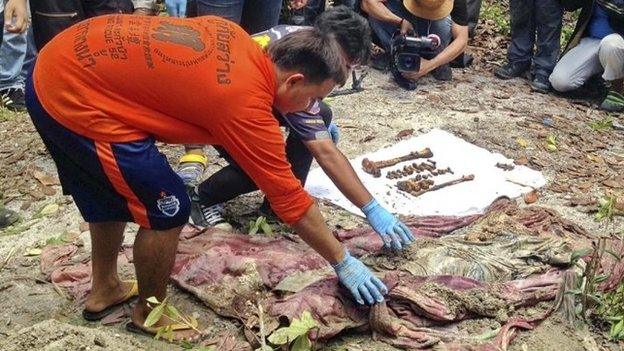Thai police moved over 'human trafficking links'
- Published
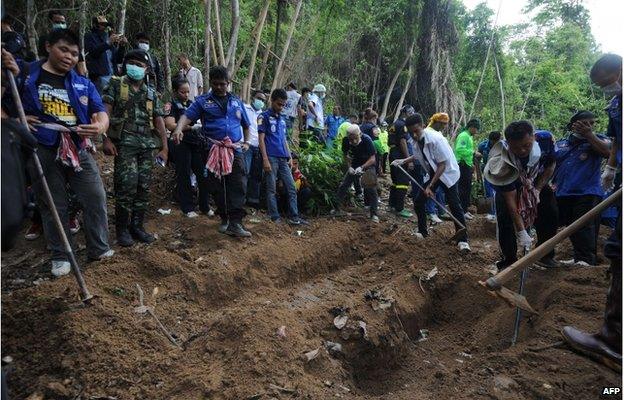
Mass graves and bodies have been found since last week in the southern Thai province of Songkhla
Thai authorities say more than 50 officers have been transferred from their posts over suspected links to human traffickers.
The announcement came after mass graves and more than 30 bodies were found in the south over the past week.
The victims were thought to be migrants from Myanmar and Bangladesh who paid smugglers to get them across Thailand.
The military junta has given local authorities until the end of next week to eradicate camps used by smugglers.
But Prime Minister Prayuth Chan-ocha, who ordered the operation, also said the problem was "from abroad and not from us".
"To solve it we must look to the source because we are merely a transit country," he said.
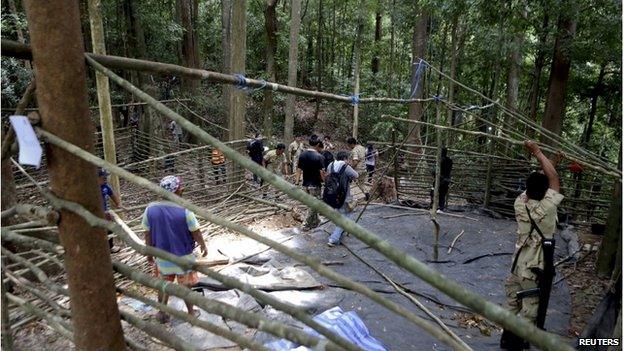
A site suspected to be an abandoned human trafficking camp was found in Songkhla on Tuesday
Last week, authorities uncovered a mass grave containing 26 bodies in the southern province of Songkhla, and since then have found more human remains and several other sites suspected to be former human trafficking camps.
The area is on a route regularly used by Rohingya Muslims fleeing persecution in Myanmar, formerly known as Burma.

Analysis: Jonathan Head, BBC News, South East Asia correspondent
So is the Thai government serious this time about tackling trafficking? The transfer of around 50 officers, mainly from the police, suggests that perhaps it is. Eighteen arrest warrants have been issued. But it is early days still, and there have been false dawns before.
Human trafficking was one of the first problems to confront Gen Prayuth after he seized power a year ago. Within a month the US, following years of warnings, had downgraded Thailand to the lowest level on its annual report on trafficking. The general promised immediate action. But it never came.
When the annual "sailing season" began in October, and boatloads of Rohingyas and Bangladeshi migrants began arriving on Thailand's Andaman coast, a few dedicated officials tried to stop the flow, organising their own raids and roadblocks, sending information about camps and traffickers back to Bangkok. They got little support.
Many of the bodies dug up over the past week were in a camp I was told about by a police officer six months ago. He said powerful vested interests barred him from shutting the camp down.
This problem is the responsibility of many Thai governments. But had Gen Prayuth acted last year, as he promised, some of those being exhumed from jungle graves might be alive today.

Rights groups have long said that Thai officials are both actively and passively complicit in the trade.
Three Thai local officials and a Burmese national have been arrested on suspicion of human trafficking in connection with the recently discovered mass graves, and police are looking for another four people.
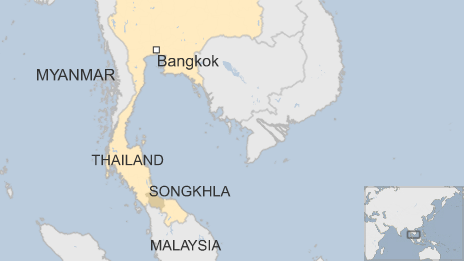
Thai police chief Gen Somyot Poompanmuang said on Thursday: "We have transferred over 50 police officers over this issue because commanders in local areas know who has been involved in what."
Several of those transferred are believed to be senior personnel.
In remarks reported by Reuters, the general added that in the past "there were no sincere efforts to solve this problem".
- Published1 May 2015
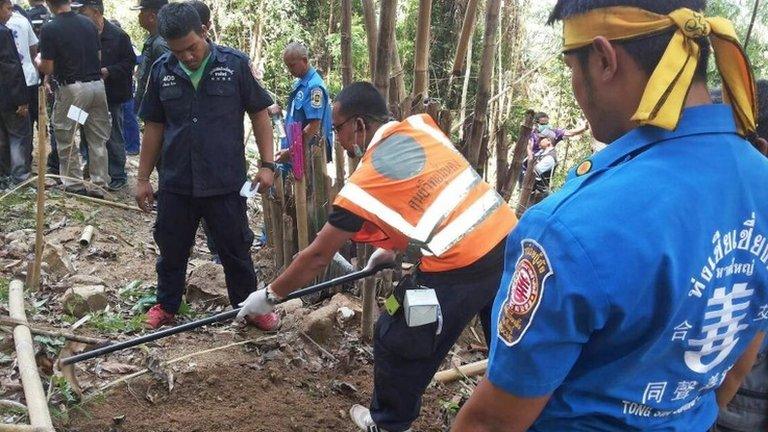
- Published5 May 2015
